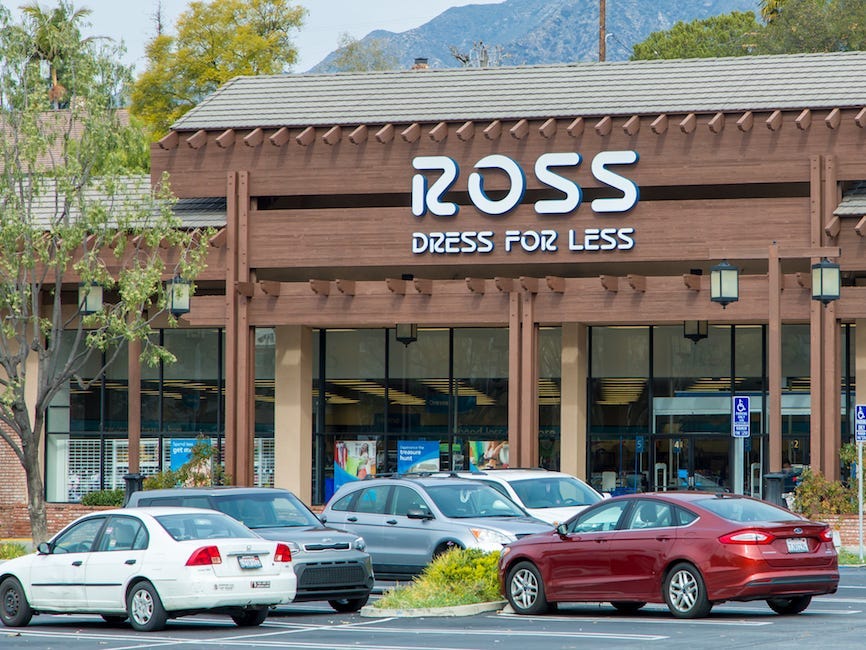
Shutterstock/Ken Wolter
- Ross Stores' second-quarter sales skyrocketed 75% higher than the same period last year.
- The economy reopening, stimulus checks, and higher vaccination rates increased foot traffic.
- Supply chain issues and new COVID variants could threaten the company's earnings next quarter.
- See more stories on Insider's business page.
Bargain retailer Ross Stores beat analysts' second-quarter expectations and posted lofty sales numbers that were driven by increasing foot traffic and customers spending more on average during each trip to the discount store.
But the company said the current quarter's results could be hit by higher supply-chain and COVID-related costs.
"We are pleased that both second quarter sales and earnings substantially exceeded our expectations. Sales benefited from customers' positive response to our broad assortment of great bargains," Ross Stores CEO Barbara Rentler said during a Thursday evening earnings call. "In addition, our results were bolstered by a number of external factors, including ongoing government stimulus, increasing vaccination rates, and diminishing COVID restrictions."
Shares of Ross Stores were down about 4.3% in after-hours trading after the company's expected third-quarter operating profit would miss current Wall Street forecasts and that its same-store sales growth would slump to 5% to 7%.
For the just-reported second quarter, same-store sales rose 15%, with Rentler stating that the children's category and Midwestern stores performed the best. In the previous quarter's earnings call, Rentler predicted that the store's apparel category would attract more demand as the economy reopens and that the store would reap benefits from pent-up consumer demand.
The increasing number of retail stores shuttering and going bankrupt will provide Ross Stores with an opportunity to expand market share, Rentler said. Ross Stores, which owns Ross Dress For Less and dd's Discounts, will open 65 new locations in the coming year.
The bargain home and apparel retailer bought back 1.4 million shares for $176 million in the second quarter and plans to buy $650 million worth of stock during 2021.
However, Rentler warned that the company could face risks from wild card variants of COVID-19, such as the Delta variant, as well as from worsening supply chain congestion.
"Looking ahead, there remains much uncertainty regarding the sustainability of the positive external factors that benefited our first half results as well as the potential risks we may face," Rentler said.
In its earning press release, the company said its expectations for the third quarter reflect "our expectation for escalating freight and supply chain costs, and ongoing COVID-related operating expenses."